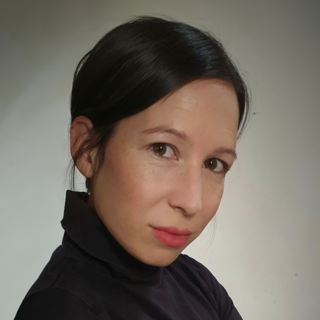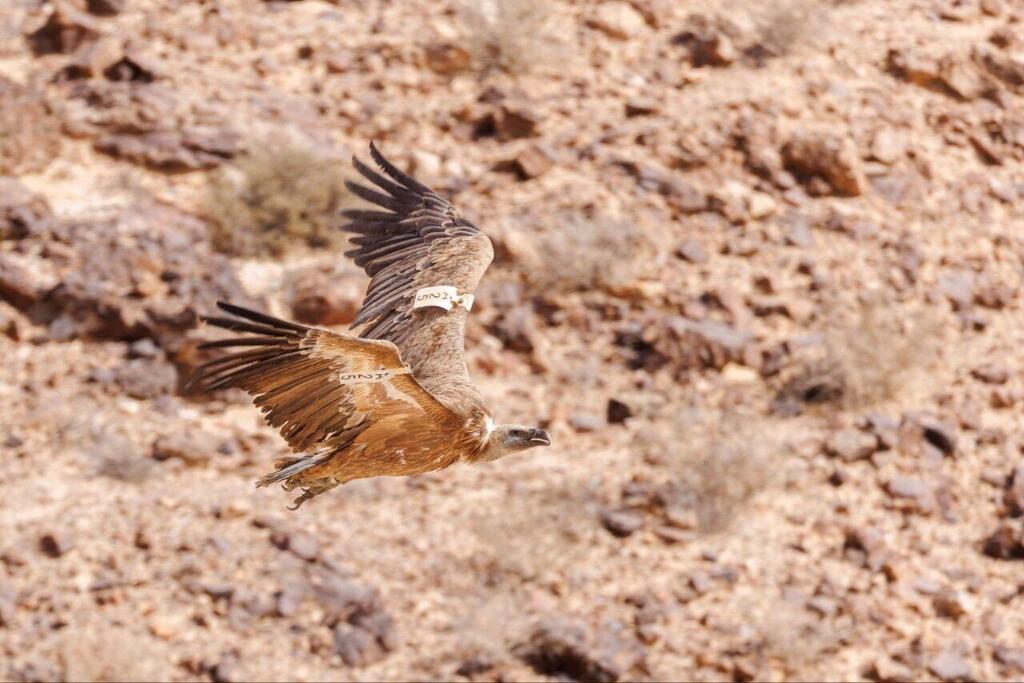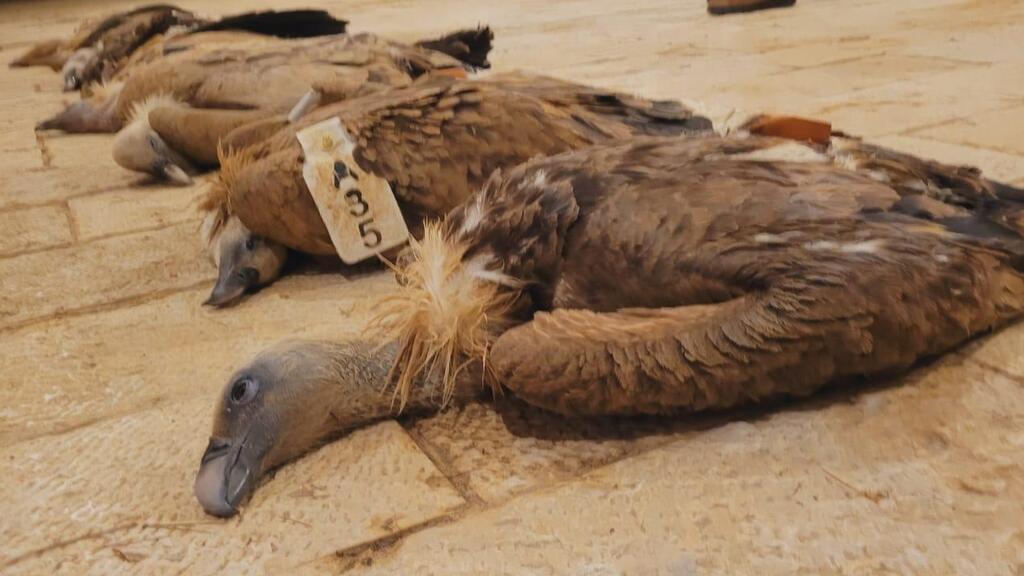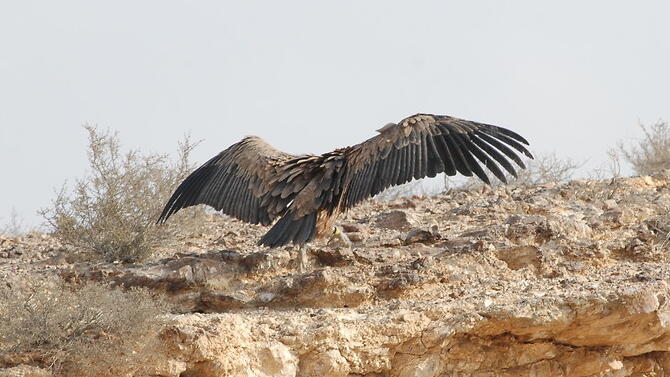An egg was found in a nest of two vultures who were poisoned to death in southern Israel back in March, prompting Nature and Parks Authority personnel to collect it in order to continue its safe incubation after its parents had perished.
At least 20 vultures were poisoned to death in southern Israel in two severe poisoning incidents in March. In the latest incident, the female vulture A25, who brooded alone on the egg in her nest for almost a month after her partner died of poisoning at the beginning of the month, was also poisoned.
4 View gallery
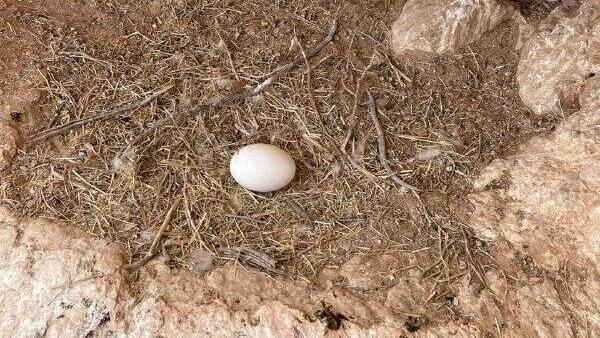

The fertilized egg in the vultures' nest
(Photo: Or Peled, Nature and Parks Authority)
After 23 days of waiting and caring for the egg, she went out to search for food - but was poisoned while searching the area. Thanks to the transmitter installed on her, Nature and Parks Authority employees identified her nesting location and worked to rescue her egg.
Members of the Arava Desert rescue unit slid down to the vultures' nests, trying to save the chicks and eggs. Volunteer Or Peled said, "When we arrived, we weren't sure if we would find anything in the nest. Our options ranged from an egg to chicks, and it was unclear if they were alive or not. The nest was about 30 meters from the cliff’s edge. When I saw the egg, tears came to my eyes, I picked it up and gently wrapped it with a lot of love and excitement."
She added, "We climbed up and saw that the egg was intact and protected after the rescue. When I heard the egg had a heartbeat and the embryo was alive - I felt like I saved a life. I served in a rescue unit in the IDF dealing with various rescue missions, but I never experienced anything like this. I hope that the chick in the egg will hatch, and a new generation of Israeli vultures will follow with all my heart."
"This mass poisoning affected everyone," said Uri Lev, head of the Arava Desert rescue unit and Central Arava Regional Council’s security chief. "We know how difficult it is for vultures here. We often have rescues near vulture nests, and we try as much as possible not to bring helicopters to avoid scaring them.
“We were hoping to find live chicks or vultures. We found only an egg. But we hope that a chick will hatch from it, and it will continue the tradition of vulture generations growing in the Arava. It was very emotional to save vultures and not just people,” he said.
Nature and Parks observer Aryeh Rosenberg added, "I’ve been an observer in the northern Arava region for seven years now, unfortunately, this is the fourth poisoning event I’ve experienced. Since the poisoning protocol was put into effect, intensive scans have been carried out on the cliffs where the nests are in an attempt to understand the consequences of the incident. After the dead vultures were discovered and after we understood there was an egg that could be saved from one of the nests, we turned to help the rescue unit, which responded immediately."
The rescue took hours, with everyone tense. "The entire team wanted to know if the egg was fertilized. Those were some nerve-wracking hours. After receiving the news, everyone was excited and emotional. There’s comfort in knowing we at least managed to save an egg, which will hopefully grow to be an adult vulture that will thrive in the challenges of the Arava in the future."
"A rapid transfer of the egg from the nesting site to the incubator was required, despite the uncertainty of whether the egg was fertilized and whether the embryo survived,” Bird ecologist at the Nature and Parks Authority Ohad Hatzofe said. “In addition, we needed to minimize the travel time under suboptimal incubation conditions."
The egg was examined at the Hai-Bar Carmel Nature Reserve. "The age of the embryo was determined according to egg measurements,” Hatzofe explained. “It was found that A25’s 23-day incubation period wasn’t in vain, and she managed to incubate the egg alone and ensure the normal development of the embryo, while starving herself and not leaving the nest.”
“We’ll continue to care for the egg and hope that the embryo will develop without issues, and that it’ll hatch when the time comes in 32 days. We’ll do everything to ensure that A25's genes continue to thrive, to contribute to the survival of the species in Israel and the Middle East,” he added.
According to the Nature and Parks Authority, 57 continuous incubation days are required for a vulture embryo to develop and hatch successfully, so the embryo that’s already halfway through the period still has about a month to develop inside the egg.
The authority hopes the embryo will be able to survive the incubation period and be born into the world. Israel’s vulture population was in serious danger of extinction even before the recent severe poisoning incidents. Estimates say there are close to 170 vultures left in Israel.


